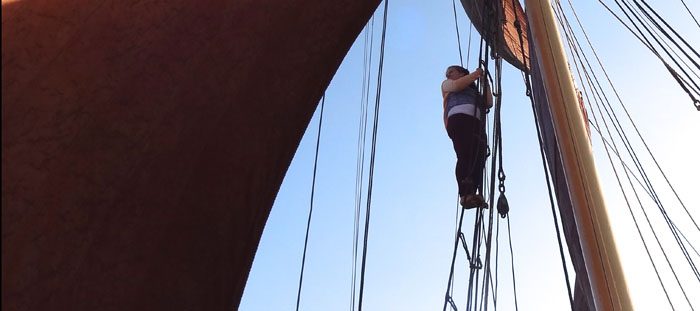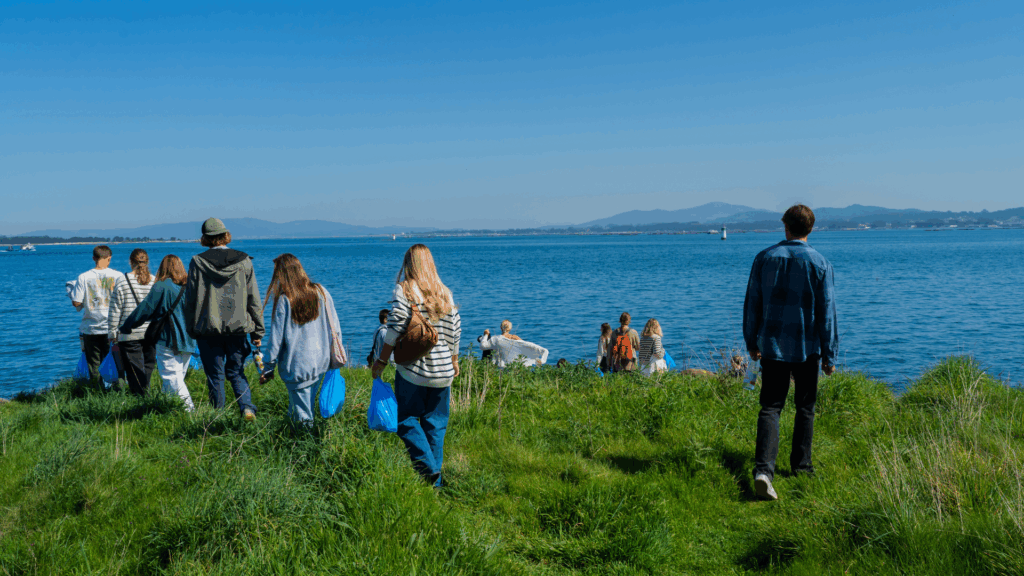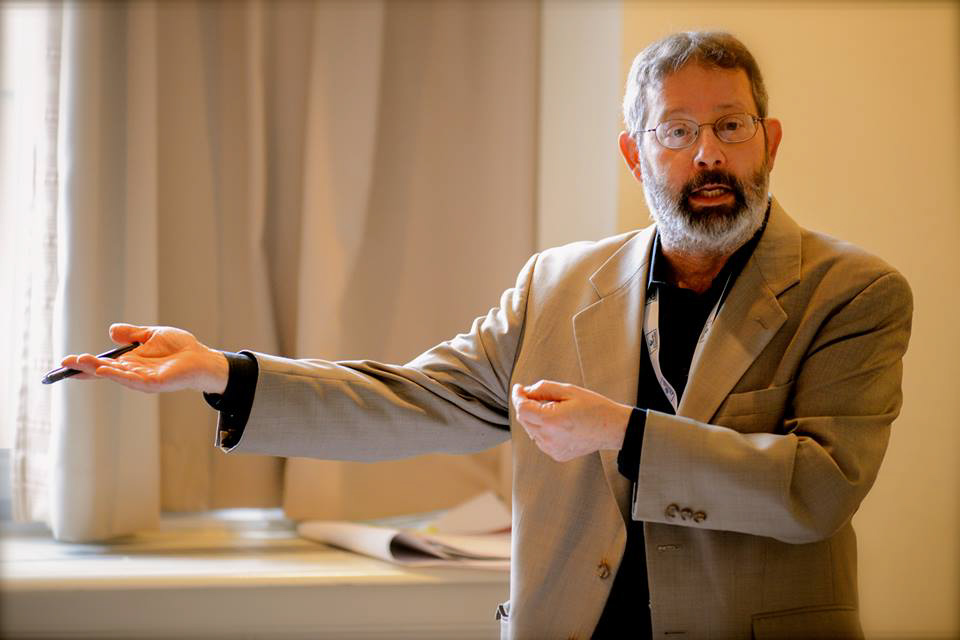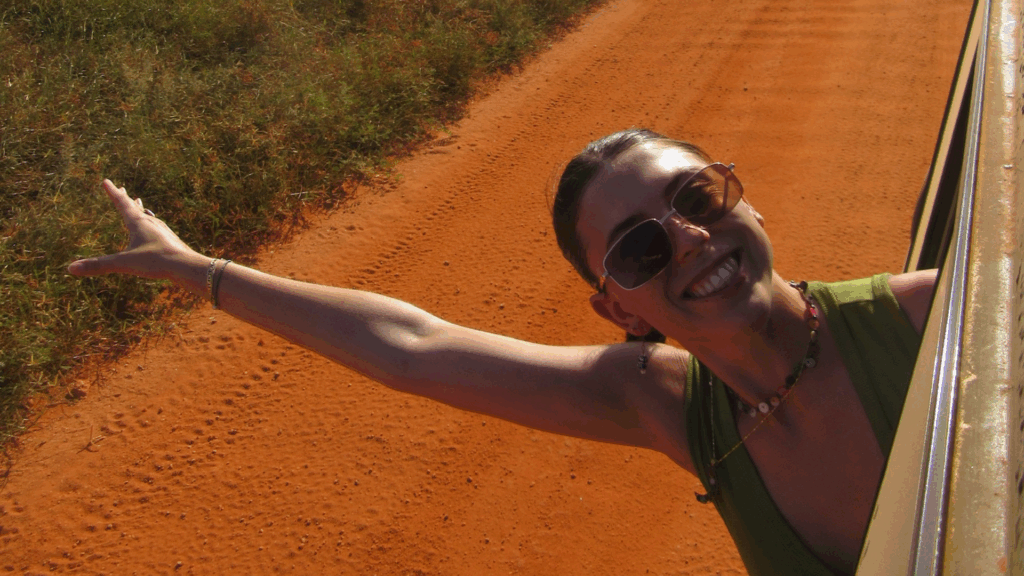
*Brandon Donnelly is a history major from the University of Alaska: Fairbanks. He wrote this post after attending a field lab with Professor Erika Paterson for Literature of the Seas.*
Each station should be like a beacon on the road towards better things, a centre for trade of course, but also for humanizing, improving, instructing.
-Joseph Conrad.
Well over 100 years ago, Joseph Conrad immortalized these powerful words in his novella Heart of Darkness. Literature of the Sea, one of my Semester at Sea classes, helped to put these words into perspective on a recent field lab in which we discussed the novella while on a small sailboat– helping us to imagine first-hand some factors that could have contributed to Conrad’s descent into madness, as discussed in Heart of Darkness.
Our field lab for Literature of the Seas began in the early morning with a brisk walk to the train station from the Southampton harbor. We were headed to a sailing barge, where we would be learning more about life at sea and reading lines from Heart of Darkness.
While on the train to Portsmouth, we had an opportunity to memorize our lines while trying to contain an already palpable excitement. For many, this was their first time out of the country, and their first opportunity to board a sailboat.

The class was greeted with not only exceptional weather, but with three captains who were clearly men of the sea. As a class, we were initially fragmented into various groups of friends and didn’t think much of talking to one another. But after hoisting sails, climbing up rigging, and steering the vessel — everybody was getting along and the initial rifts and group divides had vanished.
Perhaps it was the salt in the air, the gentle breeze, or the patient hand of trying something new, our class started to develop an exceptional sense of teamwork and camaraderie. We were given the immense honor of listening to Captain Ross, a Conrad expert, speak with passion about his life and the sea. To close, each member of the class recited our passage from the novella on the bow of the ship while, under sail, making the story spring from the pages.

Though going on a sailing barge was spectacular, what happened afterwards is something that will stay with me forever. Several students, Prof. Paterson, the three captains, and I all went to a restaurant called the Bridge. Over a basket of fish and chips and sticky toffee pudding, we listened to nautical stories of intrigue and mystery. Each tale was of travel to distant lands, and a discussion of the untamed wild beauty of the ocean. After bidding our company goodbye we set off for the train to go back to our ship.
We didn’t arrive on board until about midnight, but our conversation turned from stories of the ocean to stories of back ‘home’. There’s nothing quite as powerful as not worrying about religion, ethnicity, or any other inhibitors that we encounter in daily life. Our time on the barge, and at sea, has transcended our former predispositions and made for a truly memorable day.



